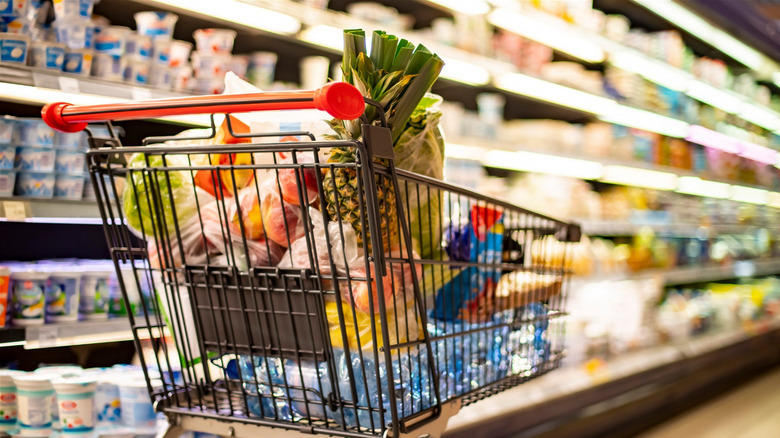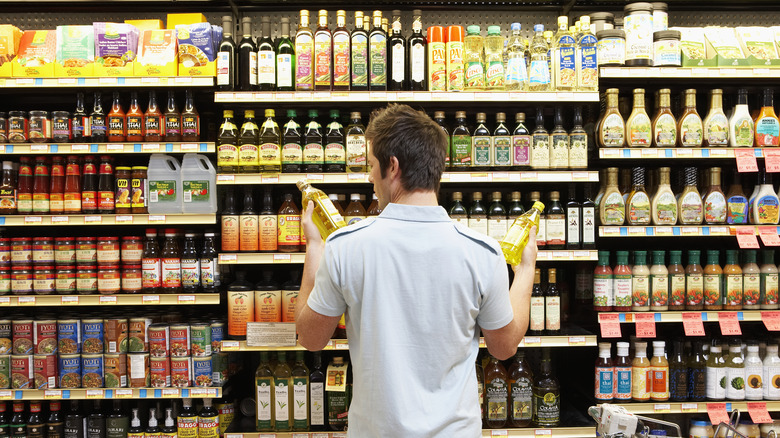The Grocery Store Sales Deal That's Actually Super Deceptive
With the cost of daily essentials rising throughout the country, taking advantage of the weekly deals offered by your local supermarket may seem like the best strategy to stretch your pennies a little bit further. Upon closer examination, however, many of the so-called cost-saving measures implemented by grocery stores may not be as good for your pocketbook as you may think.
10 for $10 deals are a popular promotion and while they seem like an ingenious way to save money at the grocery store on a large number of items, the sale may actually be a clever way to get consumers to spend more. While these sales are likely to lead consumers to believe they must purchase 10 items in order to qualify for the sale price on their chosen items, you may be able to take advantage of the savings while spending even less. In certain cases, the items in 10 for $10 deals are actually priced at $1 a piece, meaning shoppers can still save money without having to purchase an excess of items (via Consumerism Commentary).
Alternately, the items included in these sales may not really be marked down at all, with stores taking advantage of the $1 price tags to make shoppers think they are getting a deal.
10 for $10 deals may help stores' bottom lines during financial hardship
Even though items in a 10 for $10 deal may actually be the same price no matter how many items you buy, industry data has shown that shoppers are still likely to purchase a greater amount of items when presented with a 10 for $10 sale versus 5 for $5, per the New York Times. The data was first published in the years following the 2008 recession, a sociopolitical landscape that greatly echoes the financial struggles many Americans find themselves faced with today. People eat differently during a recession, a fact supermarket chains are very aware of.
In a time when many shoppers find themselves with less money to spend on groceries than in previous years, deceptive deals such as 10 for $10 sales may act as a sneaky way for grocers to get shoppers to spend more in their stores.
In order to avoid deceptive supermarket "deals," Consumer Reports suggests shoppers arm themselves with tools such as price comparison apps that allow consumers to compare prices before hitting the sales floor. Certain apps may even be able to help customers file for a refund on previously purchased products if the store drops the price. Money-saving apps like these prove that with the right knowledge, consumers can shop smarter and protect their weekly budget, even when faced with misleading sales.

